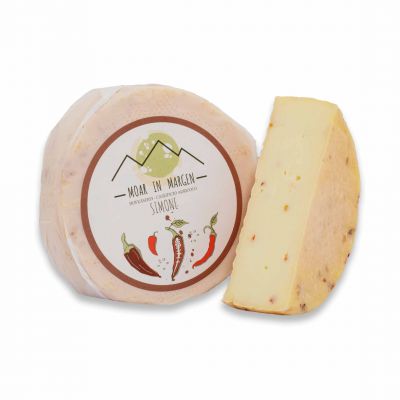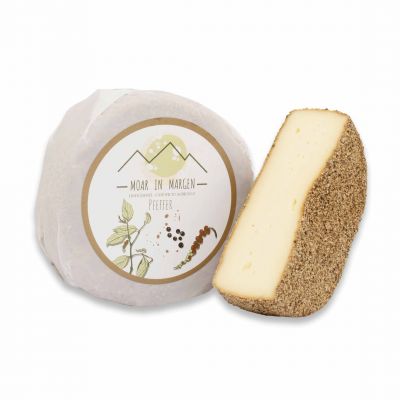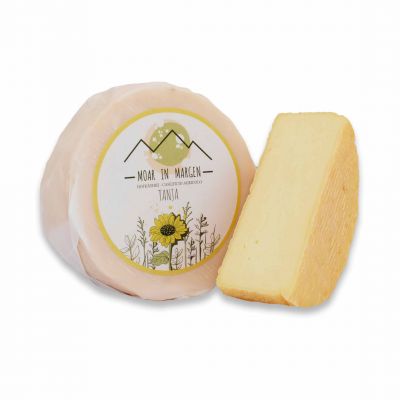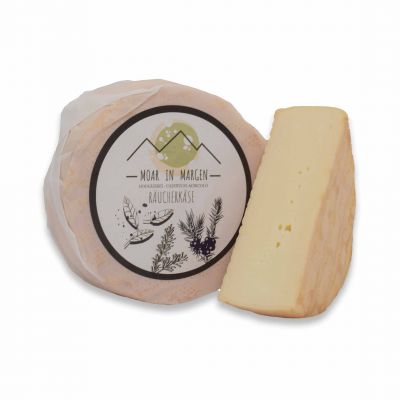WE ARE INCREASINGLY INTERESTED IN SOUTH TYROL, A MULTIFACETED AREA, EVEN FROM THE DAIRY POINT OF VIEW. THANKS TO ITS MOUNTAIN FARMSTEADS, "I MASI", RICH AND INDIVISIBLE MICROCOSMS: WE KNOW MOAR IN MARGEN
Martin is a 25-year-old young man: you look into his eyes and realise that he is where he belongs, his right place. Martin has clear ideas, he has an ambitious and well-defined project: to enhance the family farm through cheese production.
You know already that, for some years now, we have been in love with mountain farmsteads (“maso”, in Italian): these are closed and indivisible entities, which are handed down from father to son without ever losing their entirety and which are able to give us a clear, although partial, picture of a territory.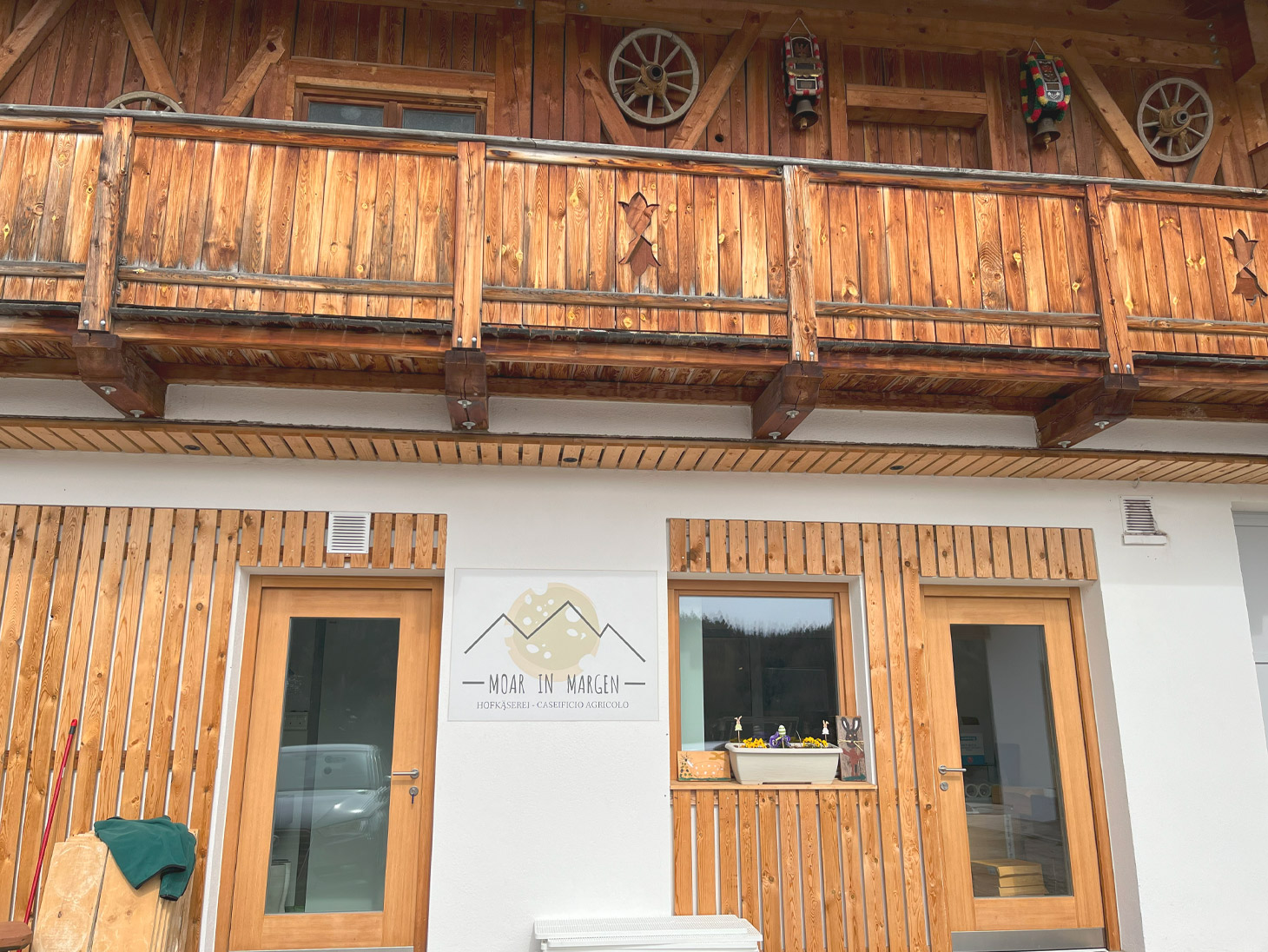
A land called Alto Adige or South Tyrol, which is still one of the few in Italy to offer a varied and widespread dairy production fabric. In fact, there are still numerous farms (maso) that have the CE mark, despite the often small cowsheds, or even the more robust cheese factories that collect the milk from the many small sheds.
Moar in Margen means “old farmstead in the wet meadow” and is located in Terento, in Val Pusteria, at about 1300 masl. The farm consists of 16 hectares of meadows and 30 hectares of forest, dwelling, cowshed, barn and dairy. Since about a year the dairy obtained the CE mark and this, as you know, allows us to market the product.
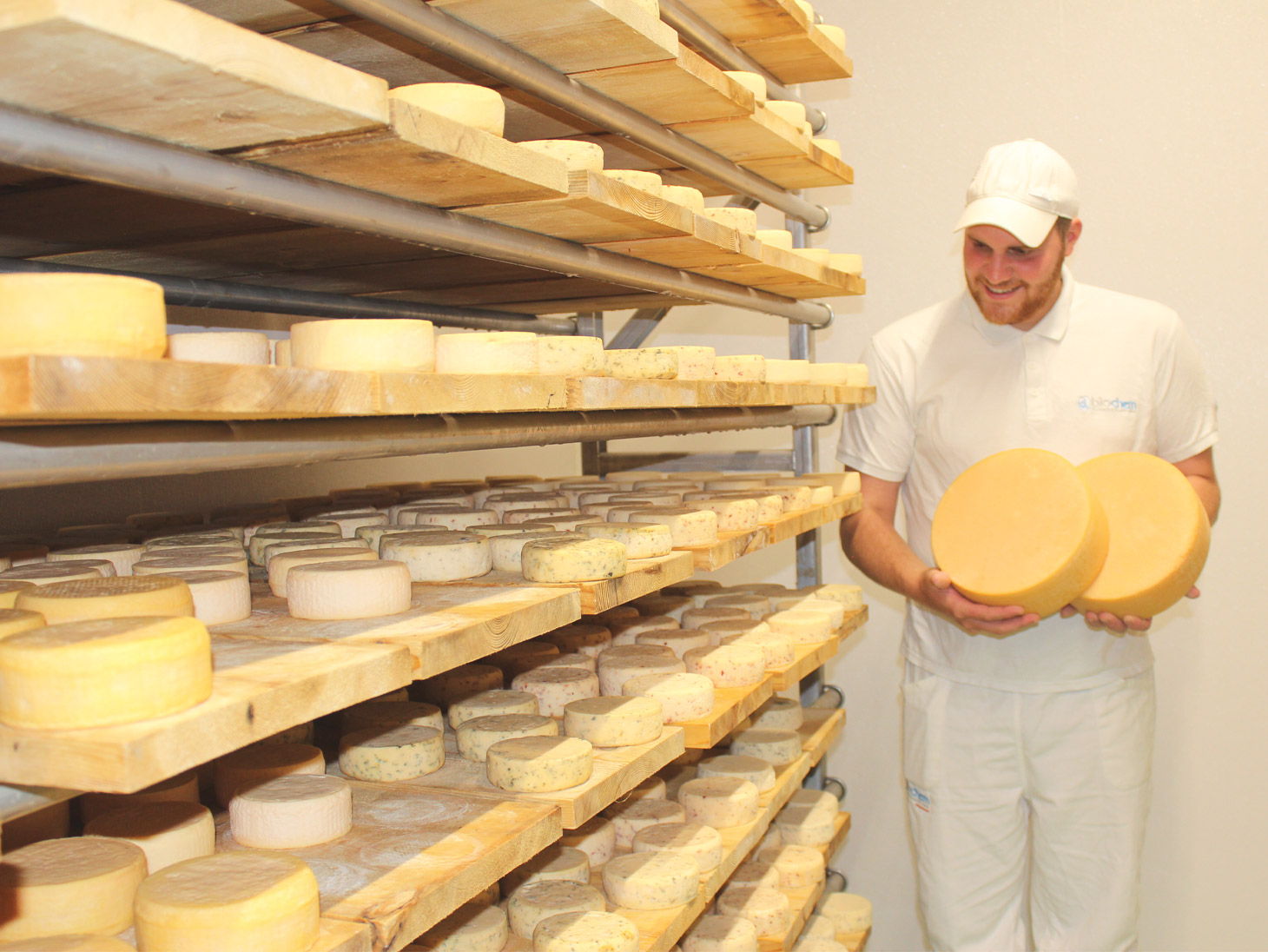
The supply chain is of absolute respect, the brown cows are mainly fed with self-produced hay stored (and crammed) above the barn and a feed supplement of around 10% of the daily ration (25 kg of hay per head + 3 kg of feed). At times, especially in spring, the cows also go out to graze in the pastures in front of the cowshed.
The barn is managed by Martin’s father, who has had the cows for many years, but always sold the milk until his son joined the farm. There are about 30 cows in the barn, 20 of which are lactating. Milking takes place using a classic mechanised system and it is processed raw once a day, always in the morning. Martin takes care of the cheesemaking.
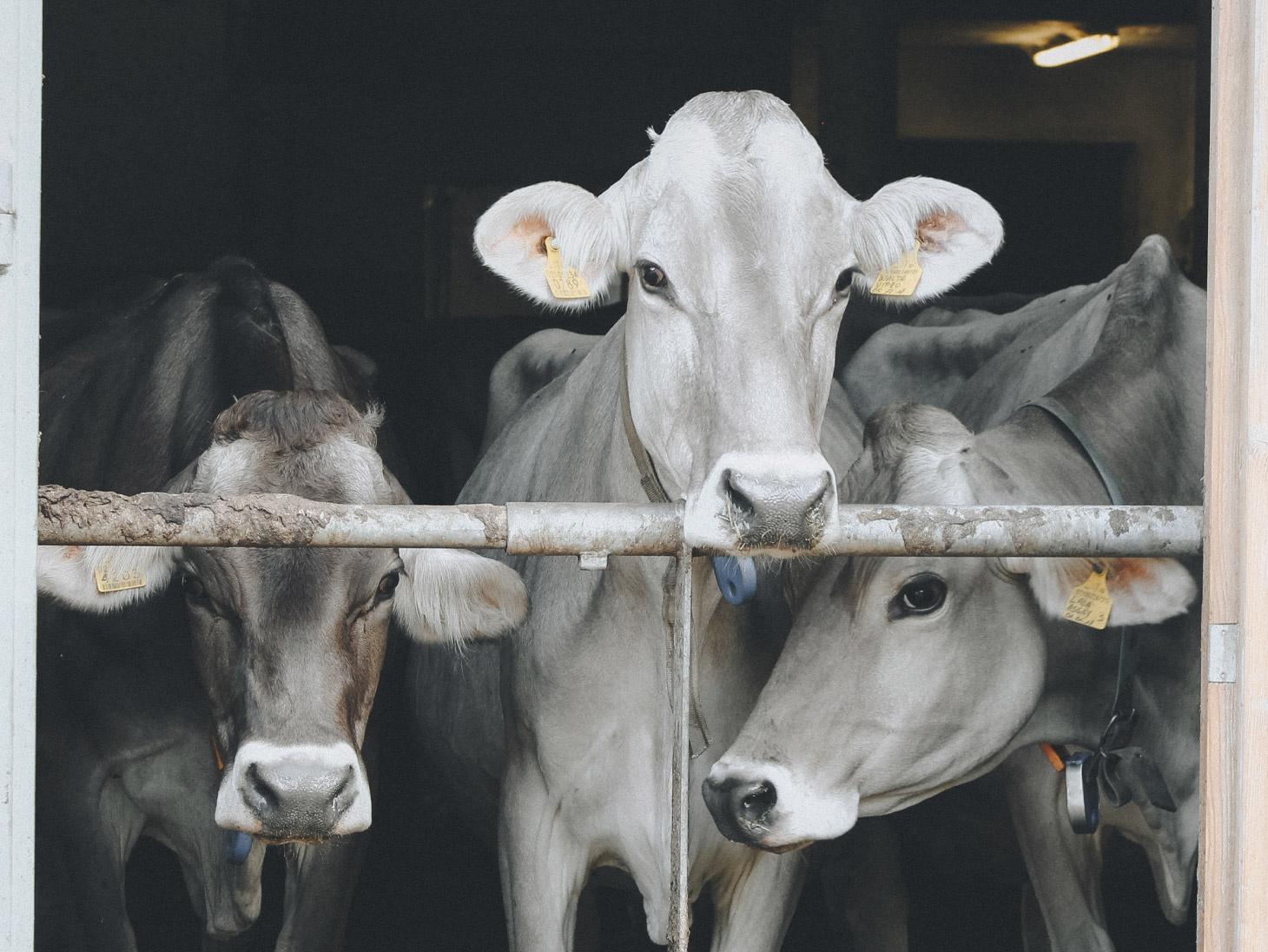
After studying at the cheesemaking school, he travelled around the region to learn the trade. Just think that he is so young but he already has eight years of experience behind him in structured dairies. Once he returned to the farm, he saw in the construction of the dairy the possibility of enhancing the milk produced at home, transforming it into several small ripened cheeses of around 250 g.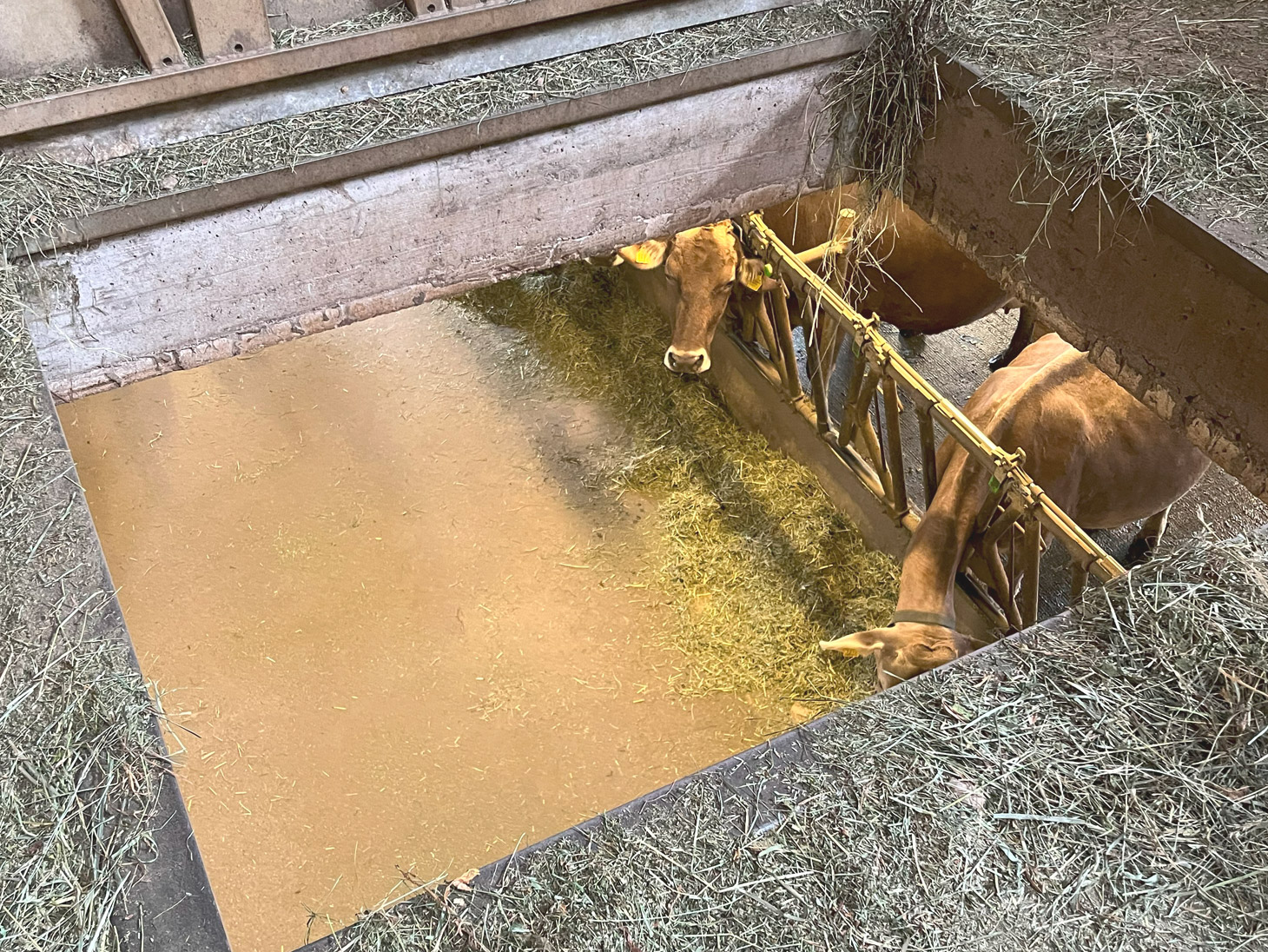
We decided to include them all, and now we will tell you about them one by one... although it is difficult to decide where to start! Let’s follow the order in which we tasted them. Bear in mind that the ripening time is around 30-40 days for each.
> Liliane is a soft caciotta with a washed rind, washed with water, salt and added Brevibacterium Linens. Sweet, buttery and well balanced. The salt does not take over and the aftertaste gives some notes of undergrowth and damp cellar.
> Tanja can be described as a funny, washed rind and chalky paste caciotta: the proteolysis advances from the undercrust towards the centre and reveals a fresh acidity, along with warm notes of cooked butter, bread crust and ripe fruit.
> Brennesel is a true best-seller, a soft caciotta with crumbled nettle inside. The flavour is sweet and strong, with bitter notes related to the characterising ingredient, especially in the end.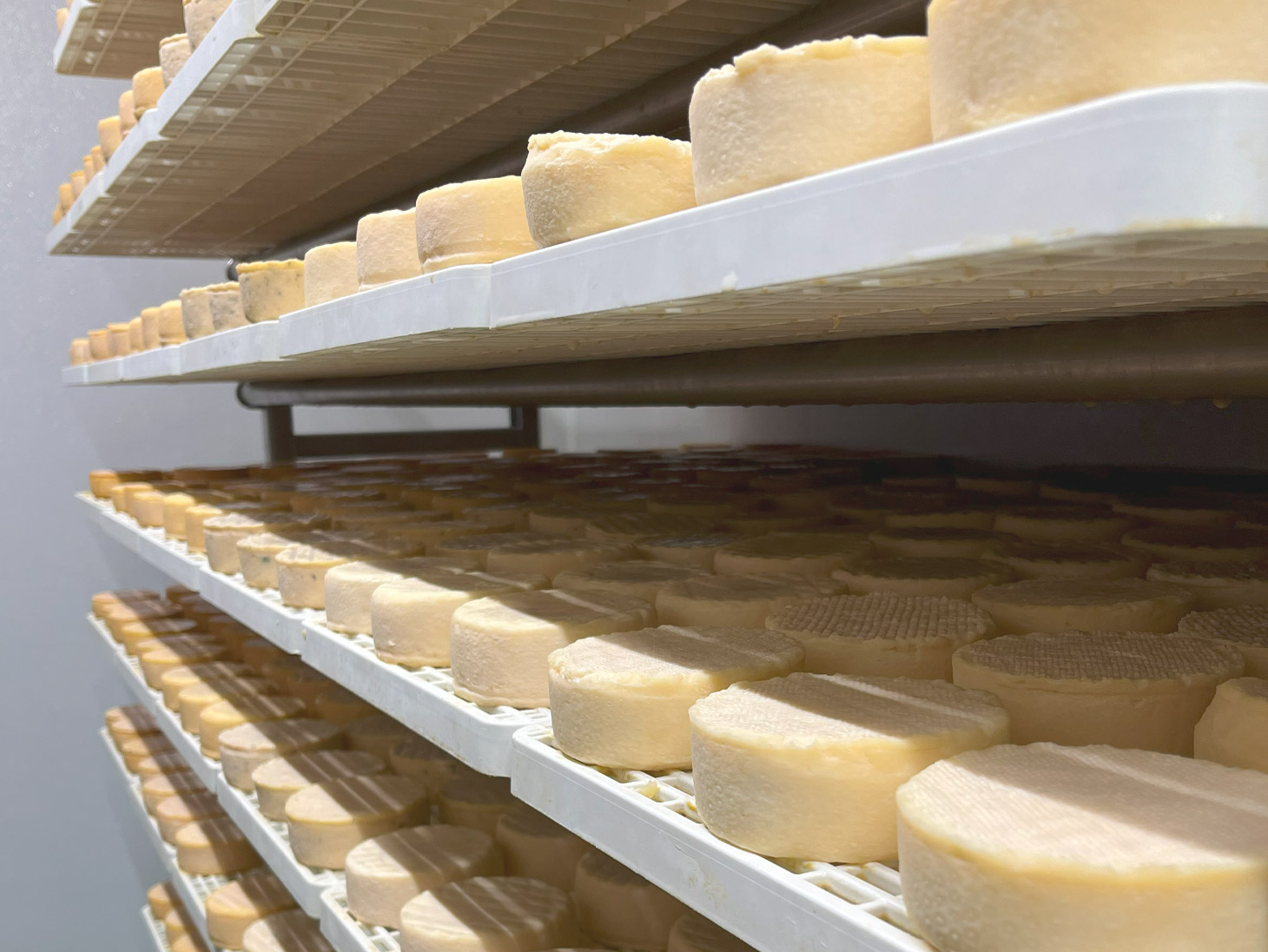
> Pfeffer, on the other hand, is a soft caciotta completely covered with ground black pepper. Its base cheese is that of Liliane. It is well balanced, the presence of pepper gives it energy and it goes well with the butteriness of the cheese.
> Simone is a small tometta with hot chili in the paste, lively on the palate, releasing a warm spiciness in the end. This cheese is also very well balanced. The paste is unctuous and tends to creamy, a success!
> Raucherkäse is the smoked version of Liliane. The smoking is done by burning berries and mountain essences. It is rather incisive, but we felt to reward the idea and enhance the range in its completeness. These are Martin’s cheeses, modern, linked to the needs of today’s market, but absolutely anchored to a chain of tradition and to a place that speaks the language of nature!





